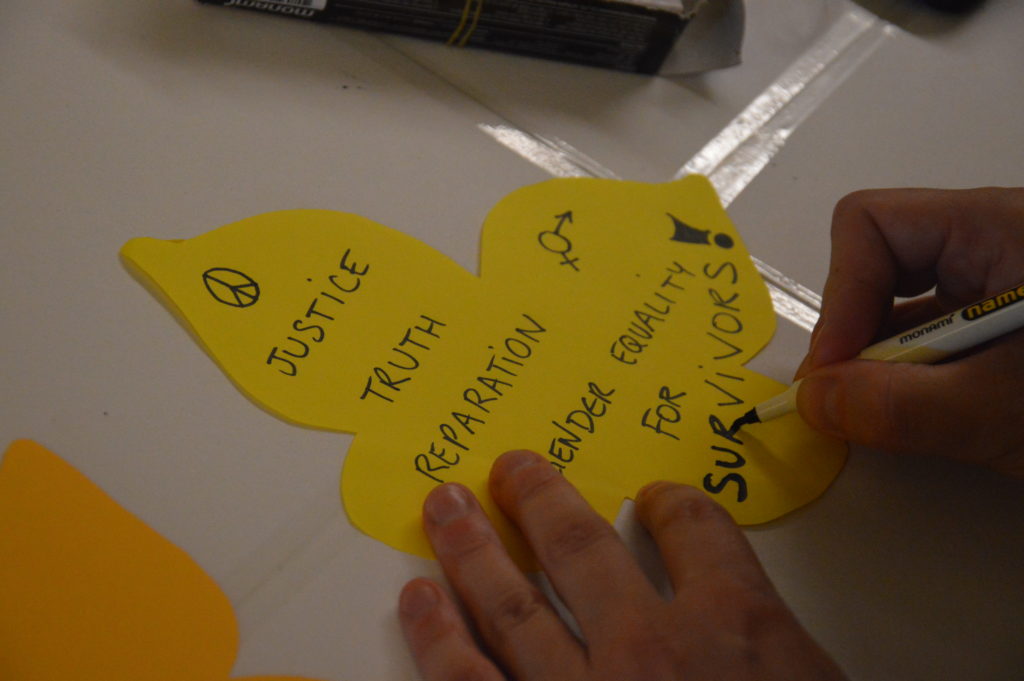
“We couldn’t allow things to be done for us without us being taken into account. Hence, the motto: Nothing about us, without us.”
Tatiana, SEMA member
One of the main objectives of SEMA is to collectively advocate for the end of sexual violence used as a weapon of war, and demand the rights of survivors, including access to justice and holistic care.
Advocacy is therefore an essential aspect of SEMA’s work. In this section we reference tools and resources that SEMA has produced for its advocacy.

Jaqueline Mutere and Angela Escobar, SEMA members from Kenya and Colombia, speak up about their perspectives on justice and reparations at the Hague Humanity Hub.

Red Line Initiative campaign – SEMA’s Call to Action
SEMA fights for a world where sexual violence is no longer used in conflict, and where States hold other States to account, and meet their international obligations by taking concrete actions to prevent, respond to, and repair the grave harms sexual violence causes.
SEMA members have a deep sense of anger and disappointment with the decades’ long failure of the international community to put an end to the use of conflict-related sexual violence. As States gathered at the PSVI conference, SEMA issued its call to action demanding concrete action from States in the areas of prevention, response, justice and accountability, and reparations for survivors of CRSV.
SEMA issues its Call to Action not only to seek improvements in their own lives, but to prevent similar violence from happening to others at risk today and in the future.
The Murad Code
The Murad Code project is a global consultative initiative aimed at building and supporting a community of better practice for, with and concerning survivors of systematic and conflict-related sexual violence. Its key objective is to respect and support survivors’ rights and to ensure work with survivors to investigate, document and record their experiences is safe, ethical and effective in upholding their human rights.
The Murad Code was developed by the Institute for International Criminal Investigations (IICI) and the Preventing Sexual Violence in Conflict Initiative of the UK government (PSVI) in consultation with Nadia’s Initiative. Through in-depth, preliminary discussions with more than 160 survivors of wartime sexual violence (including 8 SEMA members) held in 2021-2022, documenters, researchers, donors and other experts from across the world contributed to the elaboration of this tool.

Credit: Josh Estey, Panzi, DRC

Global Survivors Fund (GSF)
SEMA members’ tireless advocacy for the right to redress contributed to the establishment of the Global Survivors Fund, the reparations initiative spearheaded by Dr. Mukwege and Nadia Murad, Nobel Peace Prize laureates 2018. GSF has been set up to enhance access to reparations for survivors of conflict-related sexual violence around the globe, thus responding to a gap long identified by survivors. SEMA members have participated in GSF launch in October 2019 in New York City, to mark the 10th anniversary of the UN Mandate on Sexual Violence, in which they gave compelling testimony about their realities and the pressing need for survivor-centred approaches to change.
